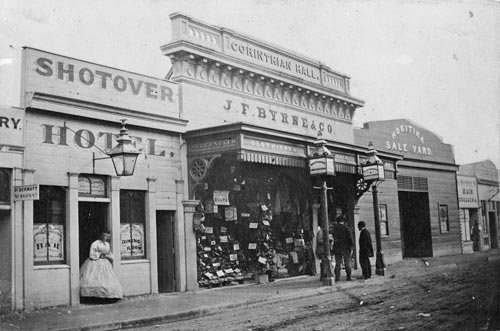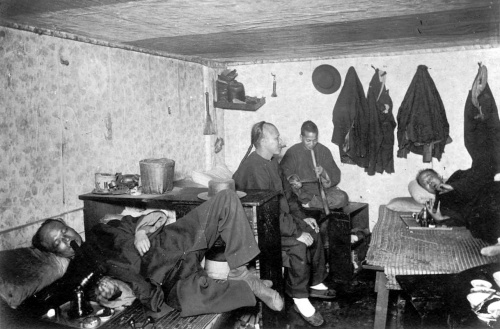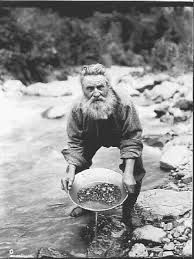In a world where we’re supposed to cry tears of joy whilst ridding ourselves of old crap (cue KonMari), I’m not ashamed to admit I’m prone to nostalgia.
In particular, I’m endlessly drawn to revisiting places. I get a deep sense of satisfaction from recognising familiar features, familiar sounds, a familiar sense of space. Yet these moments are at the same time coloured by sadness because they, more so than any other moments, make me feel difference and change in me. The place might be the same, but I’m not.
This is my awkward transition to books: I also hugely enjoy rereading them, mostly because I know exactly what I’m getting. The risk of going for a new book, possibly the beginning of a new love affair, possibly a horrible, time-wasting letdown, is occasionally more than a vulnerable reader can handle. I don’t get bored of re-encountering stories, characters, and moods — they never feel quite the same as they did the previous time, because I’ll have changed.
Of course, a book must be great for me to want to reread it in the first place, and Eleanor Catton‘s The Luminaries (Granta, 2013) is a fantastic example of such a book. I first read it just over a yeah ago (yes, its 832 pages took me, hmm, maybe 2 months to finish, and yes, I am ashamed to admit that), mostly sat on the train in or out of London whilst doing my internship. I’d bought the book mainly because I knew it had won the Man Booker Prize in 2013, and also because the location, New Zealand in the 1860s, sounded cool. Also, I was really into astrology as a teenager, but let’s not go there.
For those who’ve not yet heard of Ms Catton’s book, it’s a kind of a murder mystery, told from the perspectives of 12 men (and one whore) and set in a gold rush town on the New Zealand coast. We first meet the 11 other men through the eyes of Mr Walter Moody, a young lawyer from Great Britain who has arrived in Hokitika to make his fortune on the goldfields. The party also consists of a lovelorn hotelier, a Maori man with limited English skills, a banker, a brutish goldfields magnate (/pimp), a cunning goldsmith, a commissioning merchant, a chemist, a shipping agent with a tendency to lie, a clerk, a hatter (/opium addict) looking for revenge, and a kind chaplain. Other colourful characters include the aforementioned, opium-addict whore, a gaoler, and a pompous MP. If I tell you anything more than that, the story will be ruined, sorry!
Astrology plays a part as well (12 men, 12 star signs, etc.), but you don’t have to know your Cancer from your Gemini to enjoy it, despite every chapter beginning with an astrological map. Catton has used the golden ratio for determining the length of each chapter, with the first one being a whopping 360 pages, the last one only 3. On top of that, she writes in beautifully authentic Victorian prose:
The twelve men congregated in the smoking room of the Crown Hotel gave the impression of a party accidentally met. From the variety of their comportments and dress — frock coats, tailcoats, Norfolk jackets with buttons of horn, yellow moleskin, cambric, and twill — they might have been twelve strangers on a railway car, each bound for a separate quarter of a city that possessed fog and tides enough to divide them; indeed, the studied isolation of each man as he pored over his paper, or leaned forward to tap his ashes into the grate, or placed the splay of his hand upon the baize to take his shot at billiards, conspired to form the very type of bodily silence that occurs, late in the evening, on a public railway — deadened here not by the slur and clunk of the coaches, but by the fat clatter of the rain.
That beginning of the book, and the length of the first chapter, read very tired, very early in the morning on the train, did nearly put me off the whole piece, and once I decided to go ahead, made me worry it’d be a very tedious reading experience indeed. I’m glad that Catton proved me wrong. Once you get past the beginning, her storytelling picks up speed, so much so that by the last third you’ll be racing through the pages. Catton’s prose carries the reader through all the twists of the story. I particularly enjoyed the descriptions of her characters through action, and moments of subtle humour. This snippet is from the beginning of a séance:
Mrs. Wells had hired a two-man orchestra, comprising a fiddle and a flute, from the Catholic Friendly Society on Collingwood-street. The musicians arrived a little before seven, their instruments rolled in velvet, and Mrs. Wells directed them to the end of the hallway where two chairs has been set up facing the door. The only songs they knew were jigs and hornpipes, but Mrs. Wells had lit upon the idea that they might play their repertoire at a quartet time, or as slowly as their breath and co-ordination would permit, in order to be more in keeping with the tenor of the evening. Played slowly, the jigs turned sinister, and the hornpipes became sad; even Mannering, whose bad temper had not been assuaged by two fingers of brandy and the cheerful ministration of the Star and Garter barmaids, had to admit that the effect was very striking. When the first guests knocked upon the door, ‘Sixpenny Money’ was sounding at an aching drawl — putting one in mind not of dancing and celebration, but of funerals, sickness, and very bad news.
Wasn’t that great? I’m definitely a Catton convert. And her writing just keeps in giving — when you read it the second time around, you already know your way around her multiple plotlines, and can concentrate fully on the book’s many details. I certainly did, and it wasn’t just the fact I was in various states on zombie tiredness when reading it last time…
The Luminaries reviews:
The New York Times
The Guardian
Washington Post
Eleanor Catton was born in 1985 in Canada and raised in New Zealand. She holds an MFA from the Iowa Writers’ Workshop, where she also held an adjunct professorship, and an MA in fiction writing from the International Institute of Modern Letters. She currently lives in Auckland, New Zealand. Her debut novel The Rehearsal (2008) was shortlisted for the Guardian First Book Award and the Dylan Thomas Prize, and longlisted for the Orange Prize. It has since been published in 17 territories and 12 languages.
(Source: http://themanbookerprize.com/people/eleanor-catton)
(featured image: Hokitika in the 1920s)






Reblogged this on Still Another Writer's Blog.